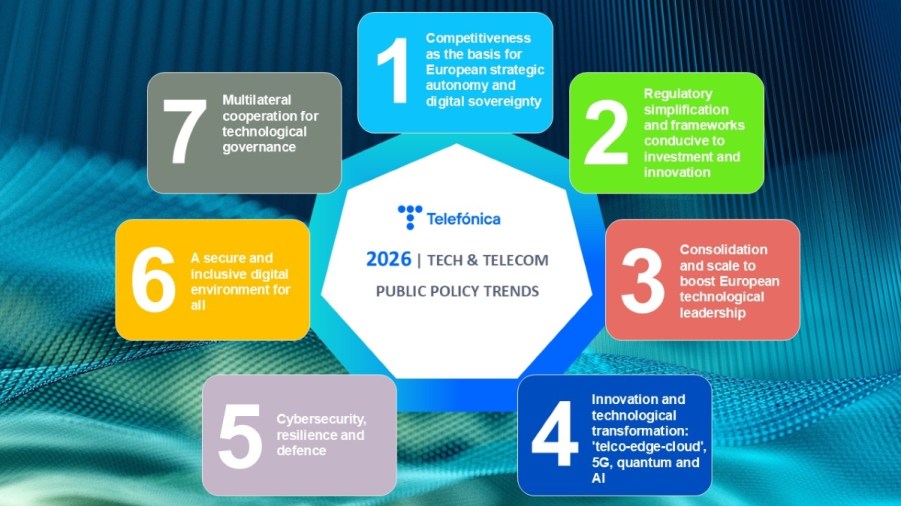The Company
Telefónica is a global company. We operate in 8 countries, with an average of 100,870 employees.

Highlights of Telefónica’s Capital Markets Day 2025
Marc Murtra Millar – Chairman & CEO
Emilio Gayo Rodríguez – Chief Operating Officer
Laura Abasolo – Chief Financial and Control Officer
Telefónica is a global company. We operate in 8 countries, with an average of 100,870 employees.
Deliver the best digital experience to our customers.
Transform and Grow is a roadmap that connects Telefónica’s purpose with the opportunities of the digital future.
Telefónica is the result of more than 100 years of anticipation and transformation.
Connectivity is the first requirement to access the digital world. Networks are the most powerful transformative platform.
Consumer trust and confidence in digital environments, safety and digital literacy, is vital for the digital economy.
At Telefónica we want to help slow down climate change and build a greener future through digitalisation.
We have the ability to anticipate the future, understand the needs of the company and continue to be pioneers in the digital world
Find out how Telefónica is helping society to prosper by promoting economic and social progress with digitalisation.